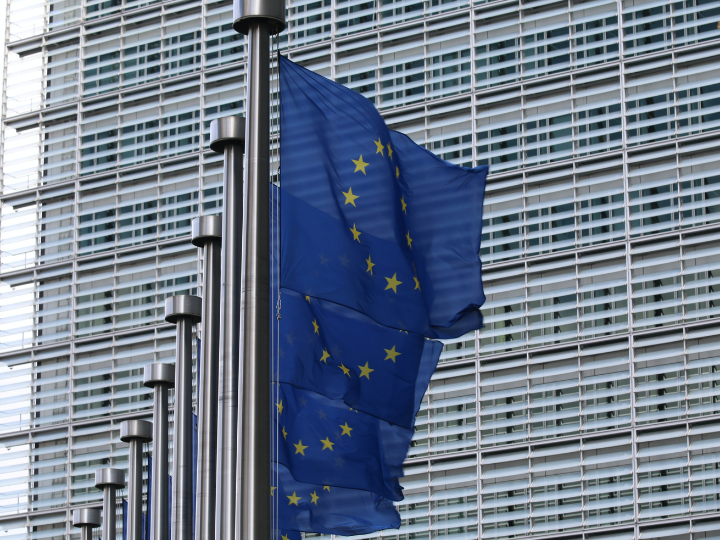by Janos Allenbach-Ammann
The EU’s Temporary Crisis and Transition Framework (TCTF), which allows member states to subsidise sustainable technologies, is welcomed by advocates for green industrial policy – but some NGOs fear it will be counterproductive for the environment and SMEs.
State aid rules, normally highly restrictive in the EU to prevent subsidy races and imbalances between richer and poorer member states, were loosened at the start of the pandemic and again when Russia invaded Ukraine.
In response to the Inflation Reduction Act (IRA) in the US, the Commission is now loosening them even more and for longer.
The Temporary Crisis and Transition Framework (TCTF), published by the Commission on Thursday (9 March), details exactly how member states will be able to subsidise sustainable technologies through state aid in the coming years.
More production capacity
With immediate effect, and among other measures, member states are now allowed to subsidise a percentage of the investment costs for manufacturing capacities in batteries, solar panels, heat pumps, wind turbines, electrolysers, and carbon capture technologies, as well as for production and recycling capacities for critical raw materials.
Jakob Hafele, co-founder of the ZOE Institute, an economic policy thinktank, welcomed the fact that the Commission now allows more state aid for green production, calling it “really good, really necessary, and really needed”.
“We need a lot more production capacity in sustainable technologies. We need to scale up fast, so the additional support through the TCTF is a good thing,” he told EURACTIV.
While Hafele approves of the TCTF from an environmental point of view, Lorenzo Fiorilli, a state aid lawyer at the climate NGO ClientEarth, called it “a missed opportunity to include a green conditionality on state aid”.
A box-ticking exercise?
According to Fiorilli, the lack of clear sustainability conditions could undermine the effectiveness of state aid.
Moreover, the lawyer criticised the short deadline of a maximum of 19 days that the Commission set itself to approve state aid measures once they are notified by member states.
“This means that notifications will not be assessed in depth,” he told EURACTIV. “In practice, this will be a box-ticking exercise.”
There are also concerns about regional disparities. The ZOE Institute’s Hafele warned of the risk of a “divergence between richer and poorer countries”.
“It’s a problem if state aid is granted more to richer regions than to poorer regions,” he said.
Regional disparities
The TCTF allows for higher investment support in poorer regions of Europe, up to €350 million per supported company, than in economically more powerful regions where investment support is limited to a maximum of €150 million for a single company.
The Commission hopes that this would keep the divergence between member states in check, but according to Hafele, who welcomes the differentiated investment support limits, the problem of fiscal space remains unaddressed.
“Poorer countries will not be able to spend as much as Germany even if they would be allowed to do so under the TCTF,” he said, arguing for “additional instruments and funding for poorer regions”.
Big corporates vs. SMEs
Meanwhile, small and medium sized enterprises (SMEs) and NGOs are worried about the effects of the TCTF on competition in the EU’s single market.
In an open letteropen letter to the European Commission, the Balanced Economy Project, the Open Markets Institute, and the European Digital SME Alliance called for “strict safeguards […] to ensure that the TCTF does not worsen market concentration both within and across EU member states”.
According to them, a permissive state aid framework would not only disadvantage poorer member states. “We should be just as worried about the prospect of large and dominant companies capturing the majority of the funding, elbowing SMEs aside,” the letter reads.
The signatories warn that large companies, while not necessarily the most innovative, were “generally better able to win public funding than start-ups and SMEs, thanks to their greater resources, administrative know-how and lobbying clout”.
Matching subsidies
They are especially worried about the possibility of “matching” state aid from third countries.
While the investment support in the TCTF is limited, member states can even surpass this support “in exceptional cases […] where there is a real risk of investments being diverted away from Europe”, according to the Commission.
For example, if an electric vehicle producer gets a generous subsidy offer from the United States, a member state government can “match” said offer even if it is above the investment support limits.
According to the open letter, this provision was “vulnerable to being gamed by multinationals”.
Hafele agreed that with this matching provision, “there is some risk of corporate capture”.
“Member states could counteract this risk by making state aid conditional on achieving certain goals, for example, productivity goals,” he told EURACTIV.
Nevertheless, he sees the changes to the state aid framework in a positive light.
“We need more capacity everywhere and there is a need everywhere,” he said, arguing strongly in favour of the EU’s turn towards a more active green industrial policy.
*first published in: Euractiv.com




 By: N. Peter Kramer
By: N. Peter Kramer

